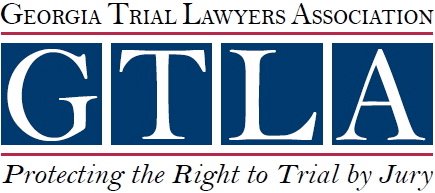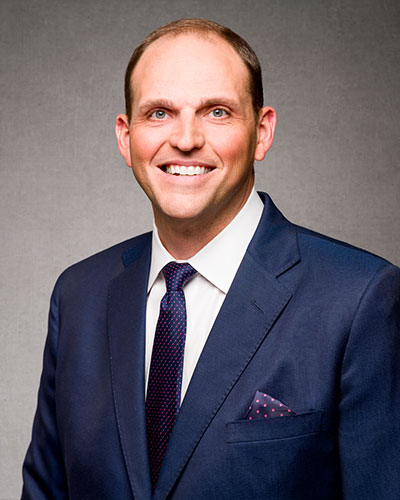Slip and fall accidents can happen anywhere, from grocery stores to office buildings, often resulting in serious injuries. In the state of Georgia, determining liability in such cases requires a careful examination of several key factors. Whether you’re a victim seeking compensation or a property owner defending against a claim, understanding these aspects is crucial.




Duty of Care
Property owners have a legal duty to maintain safe premises for visitors, tenants, and customers. This duty extends to ensuring that potential hazards, such as wet floors, uneven surfaces, or inadequate lighting, are promptly addressed to prevent accidents. When a property owner fails to uphold this duty, they may be held liable for injuries resulting from slip and fall incidents.
Negligence and Fault
Central to establishing liability in slip and fall cases is proving negligence on the part of the property owner. Negligence refers to the failure to exercise reasonable care, which directly contributes to the accident. Factors such as whether the hazard was foreseeable, how long it was present before the accident, and whether adequate warnings were provided all play crucial roles in determining fault.
Comparative Fault in Georgia
Georgia follows a comparative fault system, which means that liability can be shared between the injured party and the property owner based on their respective levels of negligence. If the injured person is found partially at fault for the accident, their recoverable damages may be reduced proportionally. It’s essential to assess the circumstances of each case thoroughly to determine the extent of each party’s responsibility.
Types of Slip and Fall Injuries
Slip and fall accidents can result in a wide range of injuries, from minor bruises to severe fractures or head trauma. The severity of these injuries can have a significant impact on the compensation that may be sought in a legal claim. Medical records and testimonies often play a crucial role in establishing the extent of the injuries and their long-term consequences.
Legal Considerations in Slip and Fall Cases
When pursuing a slip and fall claim in Georgia, it’s important to understand that certain legal principles may impact the outcome of your case. For instance, the statute of limitations dictates the time frame within which a lawsuit must be filed. In Georgia, the statute of limitations for personal injury cases, including slip and fall accidents, is generally two years from the date of the incident. Failing to file within this time frame can result in the loss of your right to seek compensation.
Evidence and Documentation
Building a strong case requires thorough documentation of the accident and its aftermath. Beyond medical records and incident reports, preserving physical evidence, such as torn clothing or footwear, can support your claim. Additionally, keeping a record of all related expenses, including medical bills and lost wages, is crucial for calculating the full extent of your damages.
Insurance Coverage and Claims
In slip and fall cases, insurance coverage often plays a significant role. Property owners may have liability insurance to cover such accidents. Understanding the insurance policy terms, coverage limits, and procedures for filing a claim can streamline the process of seeking compensation. An experienced personal injury attorney can negotiate with insurance companies on your behalf to ensure you receive a fair settlement that reflects the true extent of your losses.
Witnesses and Testimonies
In complex slip and fall cases, witnesses may provide invaluable insights and testimonies. These professionals, such as medical specialists or accident reconstruction specialists, can offer opinions on the cause of the accident, the extent of injuries, and the long-term impact on the victim’s life. Their testimony can strengthen your case by providing authoritative perspectives on liability and damages.
Preparing for Litigation
While many slip and fall cases are resolved through negotiations and settlements, some may proceed to litigation. If a fair settlement cannot be reached, preparing for litigation involves extensive preparation, including discovery, depositions, and courtroom presentations. Having a trial attorney who is familiar with Georgia’s court procedures can significantly enhance your chances of a favorable outcome.
Common Defenses in Slip and Fall Cases
Property owners and their insurers may employ various defenses to challenge liability in slip and fall cases. These defenses could include arguing that the hazard was open and obvious, suggesting comparative negligence on the part of the injured party, or questioning whether the property owner had sufficient notice of the hazard. Anticipating these defenses and addressing them effectively requires thorough legal knowledge and strategic planning.
Settlement Negotiations
In many slip and fall cases, reaching a settlement out of court can offer several advantages, including avoiding lengthy litigation, reducing legal costs, and providing faster compensation to the injured party. During settlement negotiations, your attorney will advocate for a settlement amount that reflects the full scope of your damages, including medical expenses, lost income, pain and suffering, and any long-term disability or impairment.
Client-Centered Legal Representation
At Princenthal, May & Wilson, LLC, we prioritize our clients’ needs and concerns throughout the legal process. We understand that each slip and fall case is unique, and we tailor our approach to meet the specific circumstances and goals of our clients. From the initial consultation to the resolution of your case, we provide compassionate support, clear communication, and aggressive advocacy to protect your rights and pursue justice on your behalf.
Hiring a Personal Injury Attorney How Long Will a Personal Injury Case Take?Related Videos
Standing Up for Slip and Fall Victims
If you’ve been injured in a slip and fall accident in Georgia, don’t wait to seek legal guidance. Contact Princenthal, May & Wilson, LLC today to schedule a confidential consultation. Let our experienced attorneys evaluate your case, explain your legal options, and provide the support you need to pursue the compensation you deserve. Your initial consultation is free, and we work on a contingency fee basis, meaning you pay nothing unless we recover compensation for you.





